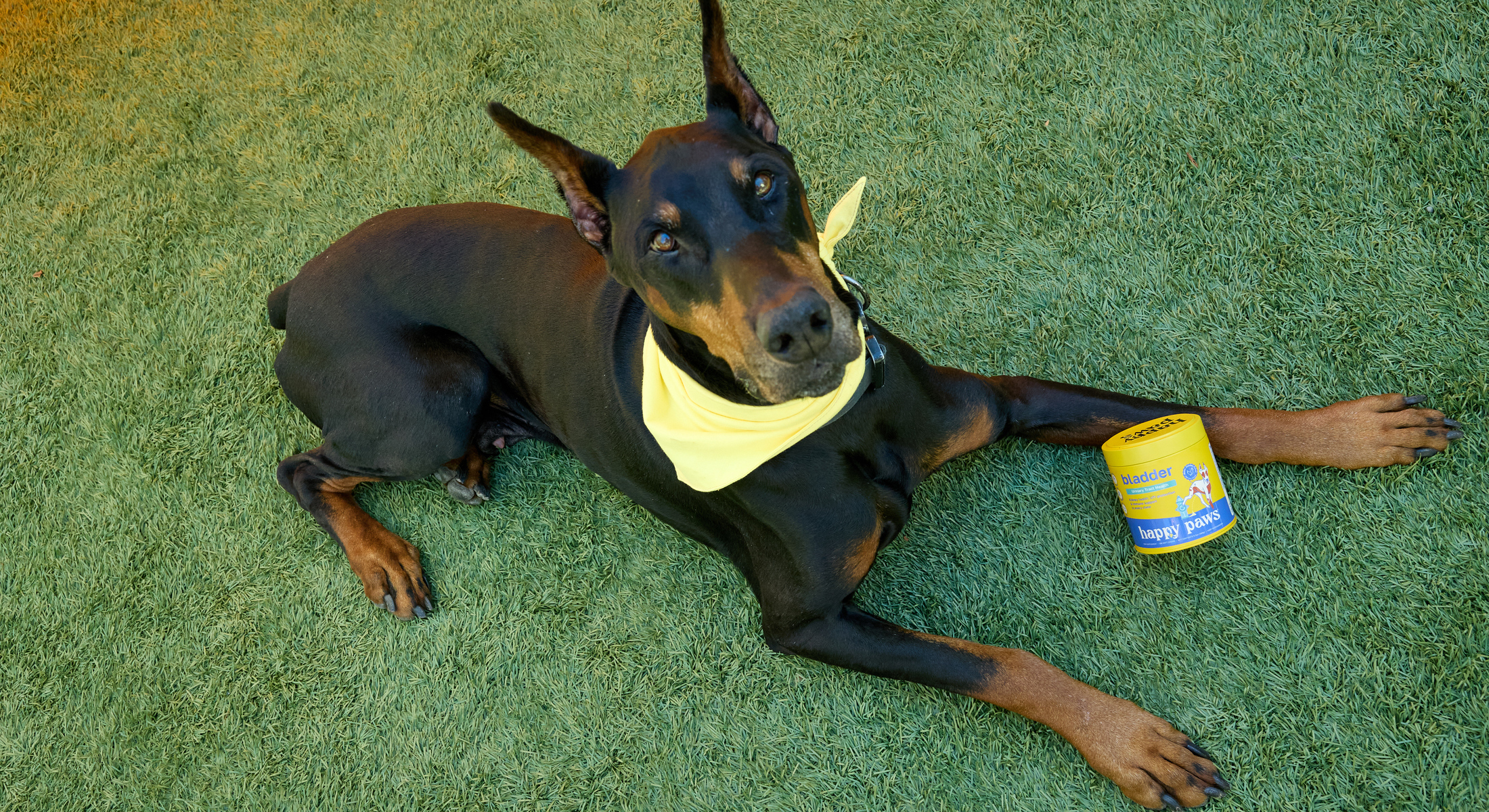If you’ve ever caught yourself saying, “Didn’t you just go outside?” to your dog, you’re far from alone. A few extra bathroom trips here and there can be perfectly normal. But when your dog is urinating noticeably more often than usual, it could signal an underlying issue that deserves attention.
Some causes are mild and temporary, while others may require prompt veterinary care. Understanding what’s normal, spotting red flags, and knowing the most common causes can help you protect your dog’s health.
Normal vs. Excess Urination in Dogs
A healthy adult dog typically urinates three to five times per day, though this number can vary depending on:
- Age: Puppies and senior dogs tend to go more often.
- Diet: Moisture content in food affects urine output.
- Activity level: More activity may mean more bathroom breaks.
- Medications: Some drugs, such as diuretics, naturally increase urination.
Veterinarians refer to excessive urination as polyuria—when a dog is producing significantly more urine, more frequently, than normal. This can result from medical, hormonal, or even behavioral factors.
6 Common Health-Related Causes of Frequent Urination
1. Urinary Tract Infection (UTI)
A UTI is one of the most common reasons dogs suddenly start urinating more often. Signs can include:
- Straining to urinate
- Discomfort or whining during urination
- Blood in the urine
UTIs occur when bacteria enter the urinary tract and multiply. Left untreated, they can progress to more serious kidney infections.
2. Hormone-Related Incontinence
Spayed females, especially as they age, may develop hormone-responsive incontinence. This usually appears as small urine leaks while lying down or sleeping, rather than frequent large urinations. While not usually painful, it can be distressing for both dog and owner.
3. Kidney or Liver Disease
Both the kidneys and liver play vital roles in maintaining fluid balance. If either organ is not functioning properly, your dog may urinate more to help flush out toxins. Other symptoms may include:
- Increased water intake
- Lethargy
- Loss of appetite
- Weight loss
4. Diabetes Mellitus or Diabetes Insipidus
- Diabetes mellitus causes excess glucose in the blood, which spills into the urine and pulls water with it, leading to more frequent urination and thirst.
- Diabetes insipidus, a rarer condition, occurs when the kidneys cannot properly conserve water, creating a constant cycle of drinking and urinating.
5. Cushing’s Disease
Cushing’s disease occurs when the body produces too much cortisol (a natural steroid hormone). Symptoms often include:
- Increased thirst and urination
- Heightened appetite
- Pot-bellied appearance
- Thinning hair and muscle weakness
6. Bladder Stones or Tumors
Both bladder stones and urinary tract tumors can irritate the bladder lining, prompting frequent urination in small amounts. Signs to watch for:
- Discomfort or straining during urination
- Blood in the urine
- Sudden changes in urination patterns
Behavioral and Environmental Factors
Not all cases are medical. Dogs may urinate more often due to:
- Stress or anxiety
- Territory marking
- Changes in environment or routine
In hot weather, high-sodium diets, or after salty treats, dogs may also drink more water and urinate more frequently.
When to See the Vet
If your dog is urinating more than usual for more than a day or two, book a veterinary appointment. Your vet may recommend:
- Urinalysis: To check for infection, glucose, protein, or crystals.
- Bloodwork: To assess kidney, liver, and hormonal function.
- Imaging: X-rays or ultrasound to detect stones or tumors.
Emergency Red Flags: Seek Immediate Care If Your Dog:
- Cannot urinate or strains without producing urine
- Passes large amounts of blood in the urine
- Shows sudden lethargy, vomiting, or appetite loss
- Drinks excessively and urinates constantly for more than 24 hours
These signs could indicate a serious medical emergency requiring urgent treatment.
Supporting Urinary Health at Home
Alongside your veterinarian’s advice, you can help maintain your dog’s urinary health by:
- Providing fresh, clean water at all times
- Offering regular bathroom breaks
- Feeding a balanced diet
- Avoiding excessive salt in treats and food
Nutritional support can also help. Ingredients such as cranberry extract, D-mannose, and marshmallow root are known for supporting urinary tract health, helping reduce bacteria adhesion, and promoting bladder comfort. Happy Paws Bladder Health Chews contain these beneficial compounds, making them a practical option for ongoing wellness support.
While dog supplements aren’t a substitute for medical treatment, they can be part of a proactive wellness plan, especially for dogs at higher risk of urinary problems due to age, breed, or medical history.Bottom line: Frequent urination in dogs shouldn’t be ignored. Whether it’s a minor UTI or a sign of something more serious, timely veterinary evaluation can help your dog get the care they need and keep those potty breaks back to normal.






